I want to inform about National Latina system
- searchmenumobile (3)
- House
- A new comer to Building Proof
- Why?
- Just how do I begin?
- Just Exactly What do I Want?
- Just how do i actually do it?
- Just how do I distribute the term?
- Boosting Community Evidence
- Principle Based Assessment
- Cultural Particular Principles
- Evaluation Plan
- Selecting an evaluator that is external
- Exploring Community Proof
- What exactly is Community-Centered EBP?
- exactly How is a Theory of Change created?
- What exactly is Our Theory of Change?
- Learning Community
- Resources
- Ask a specialist
- Share Information
- Additional menu mobile (3)
- socialmobilemenu (3)
- Principle Based Assessment
- Cultural Particular Principles
- Evaluation Plan
- Selecting an evaluator that is external
- Resources
- Ask a professional
- Share Information
- Learning Community >
- Ask a professional >
- English >
- Discover More >
- Special Collections >
- Working together with Certain Populations
Working together with Particular Populations
Performing in the intersections of physical violence against feamales in Latin@ communities calls for intentionality and an understanding that is deep of lived realities of Latin@s inside their social context. This element of the collection that is special on subgroups within Latin@ communities because of the intent behind showcasing particular methods and approaches whenever giving an answer to violence.
Acknowledging that survivors’ everyday everyday lives are complex being a starting part of our analysis, plus the numerous measurements of the identities, are critical actions towards attaining social justice for several. As previously mentioned by Gloria AnzaldГєa, residing on boundaries as well as in margins, maintaining intact an individual’s shifting and numerous identity and integrity, is a lot like attempting to swim in a brand new element, daddyhunt an “alien” element.
Within the character of honoring these complexities, the parts that follow explore a few of the measurements that may make the identities up of Latin@ survivors and their allies.
Using the services of men to get rid of physical physical violence against ladies
Into the final decade, engaging guys as allies to finish physical violence against ladies is now a significant element of just about any avoidance strategy throughout the world. Both individually and as community organizers in recognition of this, Casa de Esperanza has developed a toolkit with various resources for Latino men who want to be involved in this effort. The toolkit includes initial materials to generate an awareness that is local, along with a curated number of key resources off their companies who have been engaging Latino men both in the united states as well as in Latin America.
Latin@ Youth as Agents of Change
Young adults are a few of y our most effective agents of improvement in domestic physical physical violence intervention and prevention. Youth and adults that are young straddle the line between youth and adulthood with tremendous resiliency and tenacity. As numerous young adults start to explore exactly just exactly what having a continuing relationsip means, they wish to find out about healthier relationships and participate in preventing and closing domestic physical violence and assault that is sexual. This portion of the collection includes tools to effortlessly engage youth that is latin giving an answer to teenager dating violence that features avoidance and intervention strategies from culturally particular views.
Latin@ LGBTQ Individuals
The intersection of physical violence in Latin@ LGBTQ communities is a subject rarely addressed. You can find numerous levels of oppression affecting Latin@ LGBTQ survivors of intimate partner physical violence and looking for assistance or help can show exceptionally challenging of these people. dilemmas linked to internalized homophobia, societal barriers including discreet or blatant discrimination by companies, police among others enhance the challenges experienced by Latin@ survivors in exact exact same intercourse relationships. Furthermore, immigration regulations and anti-immigrant sentiments along with language access dilemmas offer extra challenges for this dynamic that is already complex. Regarding Latin@s in specific, there are numerous social aspects that frequently perform a crucial role within the choices to report intimate partner physical physical violence or whether to keep or stay static in an abusive relationship. The important thing role that family members plays included in the identification of several Latin@s is just a cultural value that, although celebrated, in certain cases may have a significant effect on the choice to disclose one’s orientation that is sexual. Religion and/or spirituality also perform a critical part and many people need certainly to consider a whole lot more compared to the physical violence alone before carefully deciding in the future ahead. The impact of sex part objectives and their close link with social traditions adds, most of the time, one more layer of challenges survivors. The majority to date do not include a cultural analysis when discussing this issue while there are many useful tools that raise awareness about IPV in the LGBTQ community.
